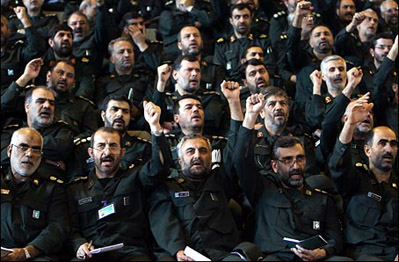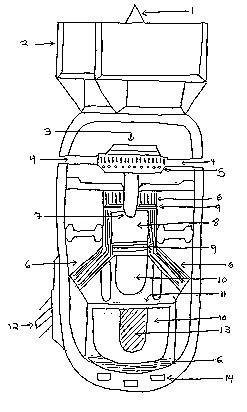Fresh Clues of Iranian Nuclear Intrigue – WSJ.com
U.S. security and law-enforcement officials say they have fresh evidence of recent efforts by Iran to evade sanctions and acquire metals from China used in high-tech weaponry, including long-range nuclear missiles.
Iran’s efforts are detailed in a series of recent emails and letters between Iranian companies and foreign suppliers seen by The Wall Street Journal. Business records show one Iranian company, ABAN Commercial & Industrial Ltd., has contracted through an intermediary for more than 30,000 kilograms (about 66,000 pounds) of tungsten copper — which can be used in missile guidance systems — from Advanced Technology & Materials Co. Ltd. of Beijing. One March 2008 email between the firms mentions shipping 215 ingots, with more planned.
The United Arab Emirates has informed the U.S. that in September it intercepted a Chinese shipment headed to Iran of specialized aluminum sheets that can be used to make ballistic missiles. A month earlier, UAE officials also intercepted an Iran-bound shipment of titanium sheets that can be used in long-range missiles, according to a recent letter to the U.S. Commerce Department from the UAE’s Washington ambassador.
Evidence of Iran’s efforts to acquire sensitive materials also is emerging from investigations by state and federal prosecutors in New York into whether a number of major Western banks illegally handled funds for Iran and deliberately hid Iranian transactions routed through the U.S. One focus of the inquiries is the role of Italy, including the Rome branch of Iran’s Bank Sepah and Italy’s Banca Intesa Sanpaolo Spa. Banca Intesa said it is cooperating in the inquiries.
The developments could present President-elect Barack Obama with an early test in responding to what many Washington security officials now say is a rapidly growing threat to the region, including U.S. allies Israel and Saudi Arabia.
All of the high-performance metals Iran has been acquiring also have industrial uses such as commercial aviation and manufacturing, making it difficult for intelligence agencies to be absolutely certain how the materials are being used. “We can’t say we know it would, or would not, be used for military purposes,” said proliferation expert Gary Milholland of the nonprofit Wisconsin Project on Nuclear Arms Control, noting that broad economic sanctions on Tehran led by the U.S. mean Iran has to go to unusual lengths to find high-grade materials for industrial use as well as weapons.
Still, he added, “There doesn’t seem to be any real doubt or debate whether Iran is going for the bomb or whether Iran is using front companies to import things. Everyone agrees on that around the world.”
Negotiate, Mr. O., negotiate. Yeah, that’ll work. Or maybe not.















